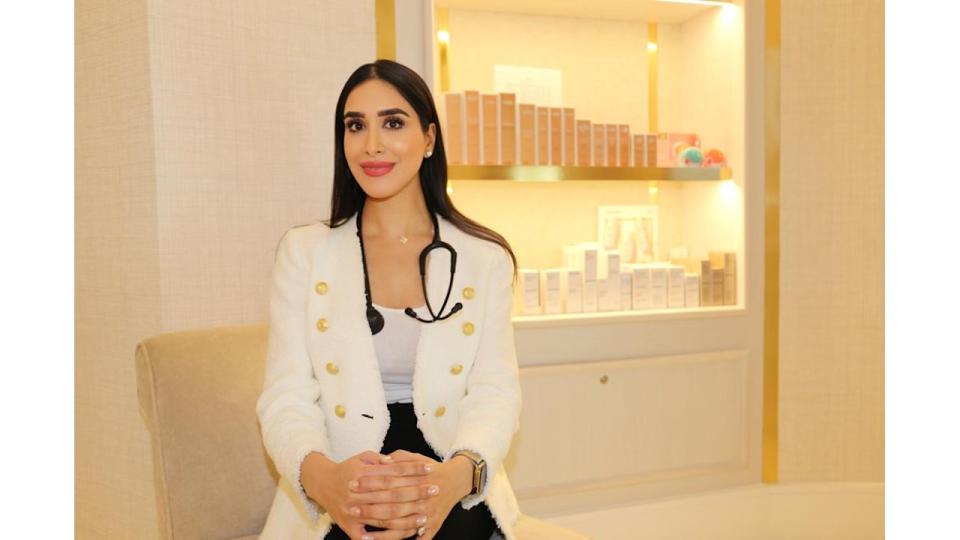Princess Kate is in 'remission' - how is this different from 'cancer-free'?

During a visit to the hospital in which she received cancer treatment, Princess Kate shared the joyous news that she is in remission.
Though delightful information, her comments caused confusion for royal fans, as the Princess also shared back in September that she was "cancer-free."
"People, including doctors, use these terms in different contexts all the time, which makes it really hard to pin down what it actually means," says Jackie Scully, who celebrated 10 years of being breast cancer-free in 2024.

Keen to dispel the confusion, we spoke to cancer experts and doctors to understand the distinction between being 'in remission' and being 'cancer-free.'
What's the difference between being in remission and cancer-free?
"The phrases 'cancer free' and 'in remission' frequently arise in discussions about cancer treatment and recovery, yet they carry distinct meanings," explains Dr. Raj Arora.
You may also like
Unknown detail about Princess Kate's cancer treatment revealed
Why Princess Kate didn't wear engagement ring on latest outing
Princess Kate rocks new hair for poignant first public outing of 2025
"Cancer-free typically signifies that no cancer can be detected within the body," she continues. "An individual labelled as cancer-free has completed their treatment and undergone various scans and tests, all of which indicate an absence of cancer. However, it's crucial to understand that being cancer-free does not ensure that the cancer won't return in the future.
"Remission, on the other hand, describes a phase in which the signs and symptoms of cancer are diminished or have vanished. In essence, being cancer-free implies that there is currently no evidence of the disease, whereas being in remission reflects a reduction or absence of cancer signs."

What does 'remission' mean?
Cancer Research UK backs up Dr. Arora's explanation, confirming that remission means there is no sign of cancer in a person's body.
"Remission means, after you've been treated for cancer, there is no evidence that there’s any cancer left," confirms Caroline Geraghty, senior cancer information nurse at Cancer Research UK.
READ: Princess Kate to make major royal first this year - report
"For many people [being in remission] is a relief. It's a relief to hear that word and for the doctor to explain to them, and possibly to show them a scan picture which shows the cancer is not there – and to see that means so much."
What happens in remission?
Most patients who are deemed to be in remission still have check-ups with doctors to ensure their cancer has not returned.
On follow-up appointments, Ms. Geraghty said: "What happens will depend on the type of cancer you have and the risk of recurrence, because you will have a follow-up programme, and that could last anything from a few months to a few years.

"The longer you're in remission, the less frequent follow-ups are, and for most cases of cancer they stop eventually."
REVEALED: King Charles makes major detail of his cancer treatment public
My experience of remission
Keen to understand the feeling that comes with the end of cancer treatment, Jackie Scully shared her experience of being in a similar position to Princess Kate.

"Breast cancer is slightly different from other cancers. I was never told I was in remission but rather that there was no evidence of disease (NED). I think the reason is that breast cancer can come back even decades after the initial diagnosis.
"The first part of my treatment plan was to have the cancer surgically removed along with my right breast, which was reconstructed with my tummy fat.
"I remember the wave of relief that washed over me when I came round from eight and a half hours in the operating theatre. The cancer had been removed and, bearing in mind I'd had other tests prior to surgery to rule out any spread of the disease, my body was free from cancer. I was free the sleepless nights when I would literally touch the lump and imagine it growing. This, for me, was the most important moment in my whole cancer journey. I see it as not just the day I became cancer-free, but the day that reminded me of the importance of living a life with meaning, before it is too late.
MORE FROM JACKIE: Cancer took everything from me – and made me discover who I truly am
"After this, following a course of chemotherapy and radiotherapy, I first heard the words 'no evidence of disease' or NED. I know breast cancer can return at any time in the future, its shadow always lurking. But, hearing those words, I felt like I had done everything I could to prevent it from coming back.
"It didn't come with the same hopeful, optimistic glow that followed cancer surgery – probably because it came at a time when I was trying to rediscover myself and carve out a new normal, so I was dealing with a sea of emotions.
"Every time I hear the words NED, however, I feel grateful. Grateful that I get to live. Grateful that I get to greet each new day with a smile. Grateful that I was one of the lucky ones. I will never take those three letters for granted.
Jackie has raised more than £160k for a number of charities, including NHS Charities Together, Breast Cancer Now and Willow over the last decade and in 2024 completed four massive endurance challenges. If you’d like to show your support, visit https://justgiving.com/team/100kourway



